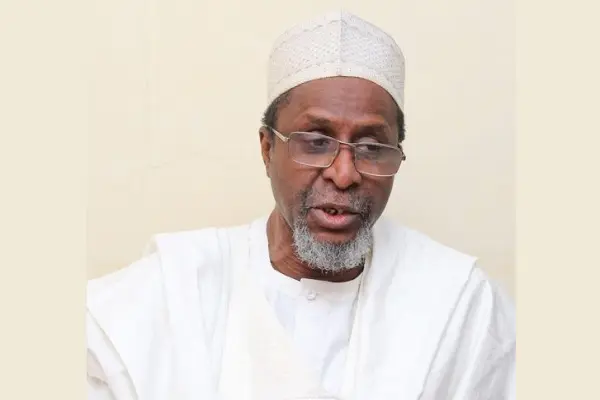The Federal Government of Nigeria has unveiled the Global Environment Facility-Capacity Building Initiative for Transparency (GEF-CBIT) project to promote transparency and accountability in reporting climate action.

Mr. Mahmud Kambari, Permanent Secretary of the Ministry of Environment, disclosed this on Thursday, January 16, 2025, in Abuja at the Inception workshop for sensitisation of key government stakeholders on (GEF-CBIT) project in Nigeria.
Kambari, who was represented by Dr Ama Moses, Director, Forestry in the ministry, said that the project would promote transparency and accountability in reporting climate action to the United Nations Framework Convention on Climate Change (UNFCCC).
The theme of the workshop is “Strengthening the Capacity of Institutions in Nigeria to Implement the Transparency Requirements of the Paris Agreement.’’
Kambari said Nigeria, as a signatory to the Paris Agreement, unveiled the project which was anchored on the Capacity Building Initiative for Transparency (CBIT) that was established in 2016 by the GEF at the request of Parties of the Paris Agreement.
“The objective of this project is to strengthen the institutional and technical capacity of Nigeria to respond to the transparency requirements of the Paris agreement.
“In doing this, the project will strengthen the capacity of institutions in the key Green House Gas (GHG) emissions sectors to manage Nigeria’s GHG inventory, Measuring, Reporting and Verification (MRV) system.’’
Kambari said that the project would equally track implementation of Nigeria’s Nationally Determined Contribution (NDC) in order to improve transparency over time.
The permanent secretary said that GEF funded project sought to support Nigeria in meeting the enhanced transparency requirements defined in Article 13 of the Paris Agreement.
“The transparency provisions of the Paris Agreement require developing countries to regularly monitor, analyse and report their national GHG emissions (by sources) and removals (sinks).
“The provisions also require them to provide information necessary to track progress towards achieving their Nationally Determined Contributions (NDCs).
“Also, the developing countries are required to provide information related to climate change adaptation and mitigation as well as information on financial, technology transfer and capacity building support needed and received.
“We need to ensure that we instrumentalise and accelerate action across sectors and society towards the reporting and realisation of the goals of the Paris Agreement,” he said.
In his opening remarks, Dr Adesoji Adeyemi, Food and Agriculture Organisation of the United Nations (FAO) National Consultant, GHG and MRV, said that FAO strategic objective was Climate Mitigation and Agri-food System which perfectly aligned with UNFCCC objective.
According to him, FAO recognises the need for technical support in the area of capacity-building for Nigerian institutions.
“This will enable Nigeria to move towards a more self-sufficient arrangement for GHG emission data compilation, reporting, verification and tracking of NDCs in terms of GHG emission and mitigation efforts.
“Regarding the NDC partnership, FAO has past and ongoing engagements in more than 40 countries.
“This project GEF-CBIT is anchored on the capacity building and transparency requirements of the Paris Agreement which was established in 2016 by GEF,” Adeyemi said.
By Abigael Joshua
